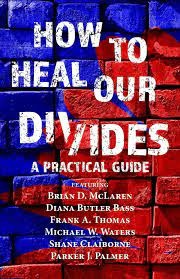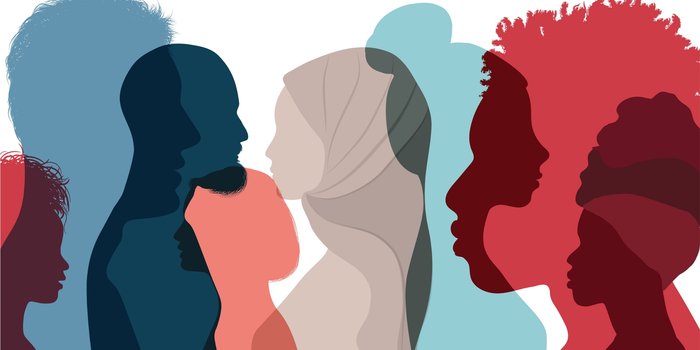While glancing through articles at the digital magazine TheGrio.com, my eyes landed on an interview with The Lucas Brothers. They’re twins who write, create, and perform standup comedy, and most recently wrote and produced the film Judas and the Black Messiah about the 1969 FBI murder of 21-year-old Black Panther Fred Hampton.
The Lucas Brothers are young, Black visionaries with an incredible education, having attended the best universities and law schools. Both wanted to make a difference by bringing real justice to their communities as lawyers. Two weeks before graduation from a prestigious law school, both decided to drop out. They said law school was hell, and they weren’t talking about academics or rigor. They were talking about substance: “…we already had a pretty antagonistic relationship to the law so once we got to law school it became even more apparent that this institution isn’t built for African Americans, in fact it’s built as a tool to oppress African Americans.” (The Lucas Brothers) The law was all about the systemic and structural continuation of white power and the ongoing oppression of African-American people.
Well, I immediately thought, that sounds just like the church and American Christianity. In fact, the substantive issue with the majority of American institutions is that they were envisioned and created with white people, more specifically white men in mind. Moreover, the goal of these great institutions was/is the maintenance of white supremacy. It was one of the reasons Black people in the U.S. had to diligently work at starting their own institutions like schools, colleges, and churches. The other reason was that due to Jim Crow and other unjust laws, Black people were not permitted to attend white schools, colleges, and even churches.
After having taught at a white Christian college a number of years and feeling like a piece of left-over uneatable food ready for the garbage pail, I had to figure out what was happening with me. Why did working in white institutions, even the Christian ones, leave me feeling worthless, sad, and horribly depressed? Eventually, I attended a Damascus Road anti-racism analysis training and that training became my sigh of relief, my aha, my liberation. Everything began to make sense as these incredible and insightful trainers gave language, explanation, validation, and affirmation to my experiences and feelings. I felt seen. I wasn’t alone or insane. I felt compelled to join this team and become an anti-racism trainer too.
Roots of Justice, Inc. (ROJ) is an anti-racism analysis training program that was born within the church. ROJ was founded under the name Damascus Road in 1995 by Tobin Miller Shearer and Regina Shands Stoltzfus, two Mennonite church leaders, a white man and an African American woman. Damascus Road referred to the biblical story of Paul, first known as Saul, who was on that road traveling to get official papers from official institutional leaders to capture and imprison any followers of that man called Jesus. Saul was on a mission to protect his religious and cultural institutions.
Meanwhile, Saul was still breathing out murderous threats against the Lord’s disciples. He went to the high priest and asked him for letters to the synagogues in Damascus, so that if he found any there who belonged to the Way, whether men or women, he might take them as prisoners to Jerusalem.
As he neared Damascus on his journey, suddenly a light from heaven flashed around him. He fell to the ground and heard a voice say to him, “Saul, Saul, why do you persecute me?”
“Who are you, Lord?” Saul asked.
“I am Jesus, whom you are persecuting,” he replied. “Now get up and go into the city, and you will be told what you must do.” The men traveling with Saul stood there speechless; they heard the sound but did not see anyone. Saul got up from the ground, but when he opened his eyes he could see nothing. So they led him by the hand into Damascus. For three days he was blind, and did not eat or drink anything. (Acts 9:1-9, NIV)
Damascus Road was born from a core belief that for most of us, especially those who call ourselves Christian, it takes a blinding encounter with God for real transformation to happen within ourselves and within our institutions, especially for white Christians who unknowingly, and knowingly, support white supremacy. You cannot serve God and white supremacy.
Another core belief within Damascus Road is that in order to heal our divides we can’t ignore institutions. White people focus on interpersonal relationships for the healing of racial divides, but Black, Indigenous, People of Color (BIPOC) know that much of the trauma and life altering harm comes through institutions.
It is the policing institution that showed up at 2020 Black Lives Matter protests in riot gear with weapons drawn, but barely showed up and barely drew weapons at an actual riotous attack, January 6, 2021 on the nation’s Capitol building.
It is the housing and banking institutions that draw red lines around certain neighborhoods calling them high risk and loan adverse.
It is the health care institution that has historically used Black bodies as test subjects without their knowledge or consent (for example, the Tuskegee syphilis experiments, the HeLa cells from Henrietta Lax, gynecological experiments, and so forth).
Today, health system data reveals that white medical providers don’t listen well to Black patients, underestimate Black pain, and give less than stellar care to their Black patients when compared to white patients.
And then there is the Christian church that tried to convince Black believers that their lot in life was to be the perpetual servants of white people because God designed it that way (the so-called curse of Ham and other such offenses). Phrases heard in churches around the country, “natural order” and “God’s ordained hierarchy” are triggers for me today.
Institutions can be dangerous.
In 2011 Damascus Road formally split from its church birthplace and went independent. A name change was needed, and Roots of Justice was born. ROJ continues to be committed to our core values but we don’t only serve churches or religious organizations; we have broadened our reach to all people, institutions, and possibilities. Our emphasis is still on institutions and racism. Much of the healing involves acknowledging that institutions, not just people, are racist.
The exhales in the room that we see from people of color are always so familiar. It’s the same exhale that came from many of us trainers years earlier at the realization that you are not the misfit or the problem struggling to survive in white institutions or at the realization that the institution was not designed for you to thrive or survive. For BIPOC people in the training that is the beginning of healing.
For well-meaning white people in the training space, it can be jarring and a bit traumatizing. The knowledge that you and your BIPOC colleagues are not on the same journey and are not having the same or even similar experiences in the same institution can be bewildering. It’s difficult to come to grips with the fact that perhaps you’re doing so well because you’re on a moving sidewalk and your BIPOC colleagues are on an unending jog up many flights of stairs. The institution works for you, and against others. However, once they get past the pain, denial, tears, and anger, the real work of transforming the institution can begin.
Institutions have public legal policies and procedures, and also private or ghost policies and procedures. Ghosts refers to policies and procedures only revealed to a few in the organization, usually white people, to help them get ahead.
Structural and systemic transformation is a long and steady process. Transformation doesn’t happen overnight. If current longstanding institutions can be transformed, we are here to help transform them.
However, I would be remiss if I did not mention many critics who say you can’t change institutions that have been racist and oppressive since their inception. The famous Audre Lorde said, “The master’s tools will never dismantle the master’s house.” We say that we are not using the master’s tools. We’re using freedom tools. And time will tell.
 This excerpt is from How to Heal Our Divides: A Practical Guide, edited by Brian Allain, and is republished with permission.
This excerpt is from How to Heal Our Divides: A Practical Guide, edited by Brian Allain, and is republished with permission.

